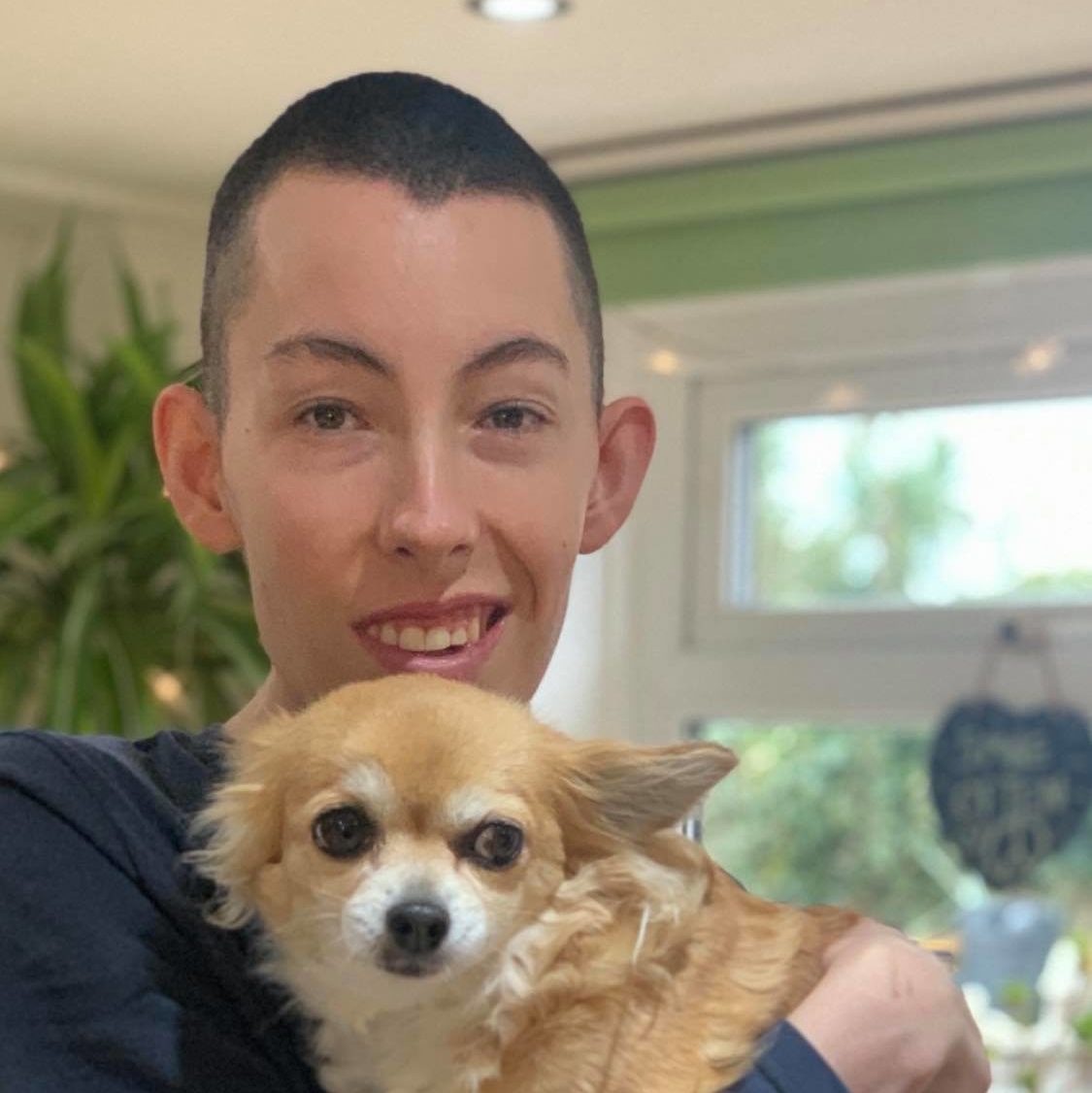Prader-Willi Syndrome (PWS) is a rare complex, genetic disorder that occurs in approximately 1 out of every 15,000 births (although it’s important to recognise that there isn’t an agreed figure and the literature states anywhere between 1 and 10,000 and 1 and 30,000 births!). PWS is a ‘spectrum’ disorder meaning symptoms vary in occurrence and severity between individuals. However the common characteristics are weak muscle tone, an overwhelming feeling of constant hunger known as ‘hyperphagia’, learning disabilities and/or learning difficulties and behavioural challenges. Many of the symptoms develop and change with age.
PWS affects males and females with equal frequency and affects all races and ethnicities. It is recognised as the most common genetic cause of life-threatening childhood obesity.
PWS results from an abnormality of chromosome 15, and definitive diagnosis is now based on genetic testing.

What causes the symptoms of Prader Willi Syndrome?
The symptoms of Prader-Willi syndrome are likely due to dysfunction of a portion of the brain called the hypothalamus. The hypothalamus is a small endocrine organ at the base of the brain that plays a crucial role in many bodily functions, including regulating hunger and satiety, body temperature, pain, sleep-wake balance, fluid balance, emotions, and fertility. Although hypothalamic dysfunction is believed to lead to the symptoms of PWS, it is not yet clear how the genetic abnormality causes hypothalamic dysfunction.
The symptoms of PWS change over time in individuals with PWS. Overall, there are two general stages of the symptoms associated with PWS:
Early Life
Infants with PWS are hypotonic or “floppy”, with very low muscle tone. A weak cry and a poor suck reflex are typical. Babies with PWS usually are unable to breastfeed and frequently require tube feeding. These infants may suffer from “failure to thrive” if feeding difficulties are not carefully monitored and treated. As these babies grow older, strength and muscle tone generally improve. Motor milestones are achieved, but are usually delayed. Toddlers typically enter a period where they may begin to gain weight easily, prior to having a heightened interest in food.
Childhood and Beyond
An unregulated appetite and easy weight gain characterise the later stages of PWS. These features most commonly begin between ages 3 and 8 years old, but are variable in onset and intensity. Individuals with PWS lack normal hunger and satiety cues. They usually are not able to control their food intake and will overeat if not closely monitored. Food seeking behaviours are very common. In addition, the metabolic rate of persons with PWS is lower than normal. Left untreated, this combination of problems leads to morbid obesity and its many complications.
In addition to obesity, a variety of other symptoms can be associated with PWS. Individuals usually exhibit cognitive challenges and those with normal range IQs usually exhibit learning difficulties. Other issues may include growth hormone deficiency/short stature, small hands and feet, scoliosis, sleep disturbances with excessive daytime sleepiness, high pain threshold, speech apraxia/dyspraxia, and infertility. Behavioural difficulties may include obsessive-compulsive symptoms, skin picking, and difficulty controlling emotions. Adults with PWS are at increased risk for mental illness.
PWS is a spectrum disorder and symptoms vary in severity and occurrence among individuals.

What causes Prader Willi Syndrome?
PWS is caused by a lack of active genetic material in a particular region of chromosome 15 (15q11-q13). Normally, individuals inherit one copy of chromosome 15 from their mother and one from their father. The genes in the PWS region are normally only active on the chromosome that came from the father. In PWS, the genetic defect causing the inactivity of chromosome 15 from the father (paternal chromosome 15) can occur in one of three ways:
PWS by Deletion
Most often, part of the chromosome 15 that was inherited from the person’s father is missing, or deleted, in this critical region. This small deletion occurs in approximately 70% of cases and usually is not detectable with routine genetic analysis such as amniocentesis.
PWS by UPD
Another 30% or so of cases occur when an individual inherits two chromosome 15s from their mother and none from their father. This scenario is termed maternal uniparental disomy (UPD).
PWS by Imprinting Mutation
Finally, in a very small percentage of cases (1-3%), a small genetic mutation in the Prader-Willi region causes the paternal chromosome 15 genetic material (although present) to be inactive.
How do these genetic defects cause the symptoms seen in Prader-Willi syndrome?
The PWS region of chromosome 15 is one of the most complex regions of the human genome. Although there have been significant advances in understanding and characterising the genetic changes associated with PWS, the exact mechanism by which lack of functional genetic material in this region leads to the symptoms associated with PWS is not understood. Scientists are actively studying the normal role of the genetic sequences in the PWS region and how their loss affects the hypothalamus and other systems in the body.
Are there differences in the severity of PWS based on the genetic subtype?
There may be some subtle differences in the characteristics of PWS based on genetic subtype: for example, those with deletions may be fair-skinned with light hair compared to other family members and may be more susceptible to seizures; those with PWS by UPD may be at higher risk for mental illness in young adulthood. Overall, however, there is considerable overlap between the different genetic subtypes. It is likely that the thousands of genes outside the PWS region, which exhibit normal variation between individuals, also contributes significantly to the variability in PWS symptoms between those with the disorder.
Is Prader Willi Syndrome Hereditary
Deletion and UPD are random occurrences and generally are not associated with an increased risk of recurrence in future pregnancies. In the case of an imprinting mutation, Prader-Willi syndrome can reoccur within a family. Families with concerns about their risk for PWS should speak to a specialist doctor.
Is there a cure for Prader-Willi syndrome?
Currently, there is no cure for Prader-Willi syndrome, and most research to date has been targeted towards treating specific symptoms. For many individuals affected by the disorder, the elimination of some of the most difficult aspects of the syndrome, such as the insatiable appetite and obesity, would represent a significant improvement in quality of life and the ability to live independently. The Foundation for Prader-Willi Research is interested in advancing research toward understanding and treating specific aspects of the syndrome, with the goal of an eventual cure for PWS.

